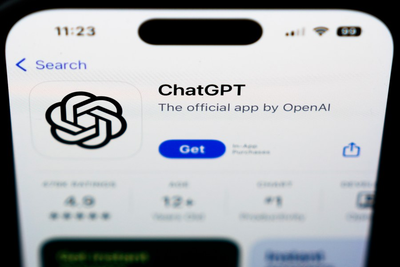
A Groundbreaking Lawsuit: Canadian Publishers Take on OpenAI
Canada's media landscape has witnessed a significant development in recent days, with a coalition of prominent news publishers joining forces to file a lawsuit against OpenAI. The move is aimed at addressing the practice of scraping large amounts of content from Canadian media outlets without permission or compensation.
The plaintiffs include some of Canada's most respected publications: The Canadian Press, Torstar, Globe and Mail, Postmedia, and CBC/Radio-Canada. These news organizations have collectively expressed concerns over OpenAI's use of their copyrighted material to train its generative artificial intelligence system, ChatGPT.
OpenAI's Practices Under Fire
The coalition asserts that OpenAI is not only breaching copyright laws but also capitalizing on the value created by news content without providing fair compensation. This stance has sparked an intense debate about the role of generative AI in journalism, with many arguing that it's essential for innovation to be grounded in fairness.
News media companies have invested substantial resources into their operations, and they expect intellectual property rights to be respected. The coalition maintains that any use of copyrighted content must adhere to fair terms, ensuring the integrity and profitability of journalism.
The Impact on Canadian Journalism
The lawsuit has implications for Canada's media landscape, particularly given the country's efforts to safeguard its news industry through legislation such as the Online News Act. This law is aimed at promoting a more equitable balance between publishers and online platforms like Google and Meta.
While OpenAI asserts that its models are trained on publicly available data and that their use of news content aligns with fair use principles, the coalition maintains that any profit made from such content must be compensated. This difference in perspective reflects a broader discussion about how AI should interact with copyrighted material.
A Global Trend: Collaboration Over Conflict
OpenAI's practices have sparked lawsuits across multiple jurisdictions. In the United States alone, several news organizations, including The New York Times and The Wall Street Journal, have chosen to collaborate rather than litigate by signing licensing deals for the use of their content.
Certainly, there are precedents where news publishers have opted to work with AI systems rather than sue them. This strategy often involves securing compensation or obtaining assurances about how content will be used and credited.
A Canadian Response: Legislative Initiatives
Canada's response to these concerns has been multi-faceted, including the passage of the Online News Act. This legislation requires Google and Meta to compensate news publishers for using their content, a move that reflects an effort to address long-standing issues in the industry.
Following the introduction of this law, Meta chose to remove news from its platforms in Canada as it did not wish to continue sharing news without paying publishers, while Google has reached a $100 million deal with Canadian news outlets.
The Way Forward: A Balance Between Innovation and Protection
The lawsuit filed by the coalition of Canadian publishers represents a critical moment for discussions about copyright law in the age of AI. As technology continues to evolve at an unprecedented pace, it is imperative that laws and regulations keep up with these changes.
While some have argued that generative AI can be harnessed for good, including in journalism, ensuring fair compensation and adherence to copyright laws will remain paramount.
A Glimmer of Hope: Collaboration Over Conflict
The situation highlights the complexities surrounding intellectual property rights and their intersection with technological innovation. As the media landscape continues to shift, news organizations may need to adapt by negotiating licensing deals or advocating for stronger protections under copyright law.
Ultimately, finding a balance between harnessing AI's potential while safeguarding intellectual property rights will be crucial. This requires collaboration among multiple stakeholders and a commitment to fair compensation for creators.
A Conclusion: Fairness is Key in the Age of AI
The lawsuit filed by Canadian news publishers underscores the importance of addressing copyright breaches committed by OpenAI. As technology advances, respecting intellectual property rights while fostering innovation will be essential.
It remains to be seen how this case will unfold and what implications it might have for the broader debate about AI in journalism. However, one thing is clear: fairness must always guide any use of copyrighted material, ensuring that creators are justly compensated.